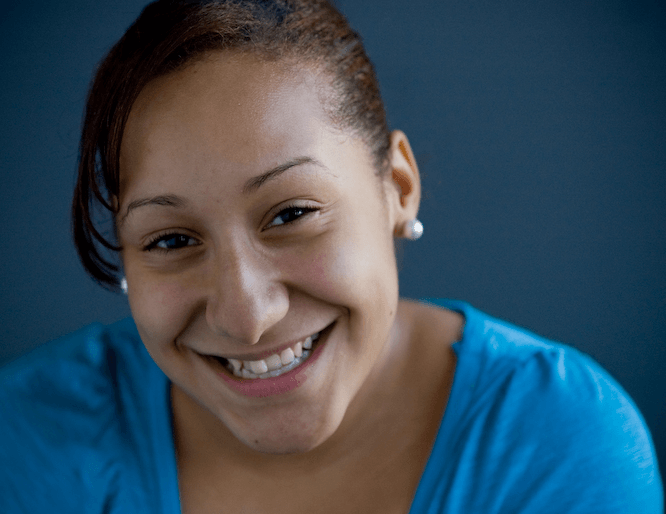OUR PHILOSOPHIES
Family Focus's philosophies have evolved out of the staff's experiences as adoptive parents, adopted persons and child welfare professionals. The perspectives reflected in these writings are derived from deeply held beliefs about what it means to be parents, what it means to love and ultimately, what it means to be human.
"The behavior of children determines only where they live, not whether or not they get to have a family. Children have a right not to accept our values for them: choosing 'institution behavior' over 'community behavior' is a valid option for a child."
"Parents have to be 'bigger than' their children and all their children's issues. There can be no behavior described as a 'deal breaker' to a true parent."
"Adults adopt - children are adopted. Adults initiate; children respond. It is the adults who need to claim the children, never the other way around"
How We See It
Protecting the Terms "Mom" and "Dad"
Our relationship with our parents goes to the core of our identity. Using the terms 'mom' and 'dad' (or their equivalent) for any and every temporary caretaker of our children severely undermines the truth of permanent parental commitment. It is confusing and misleading for all of us, especially the kids, and should be forbidden for any age child.
The sense of belonging and comfort that some believe the use of 'mom' and 'dad' gives to the children, especially the youngest ones, is too often a false sense of security. If an adoption does not follow within the foster placement, and most often it does not follow, it reinforces the child's experience of still more betrayal by adults.
The use of first names, especially for pre-adoptive parents, protects everyone. For those foster parents not comfortable with that option, the use of 'aunt' and 'uncle' easily conveys the truth of their caring relationships that have not converted, and often will not be converting, to legal parenting.
Switching from first names or aunt and uncle to 'mom' and 'dad' at the time of the adoption sharply delineates the change from temporary to permanent parenting. This clarity protects everyone and hurts no one.
Recognizing That Adoption is Neither Long-term Nor Permanent Foster Care
The commitment of the legal finalization of an adoption is the only equivalent to the familial safeguards that a birth child has automatically. Anything less than finalization is always less. Psychological commitments do not cut it, e.g., with HIPPA. Nor with the unconscious mind.
Unequal commitments to the same safeguards for each of our children are experienced as unequal, and unfair, by each of our children.
Adult Adoption
People need parents.
That is true at five; it's true at fifteen. But it's also true at twenty-five and thirty-five. Whether one is finalizing the adoption of an adult who has long been part of the family, or even adopting an adult who was only brought into the family as an adult, it still remains true.
When adoption finalization is mistakenly believed to be only important for minors, the truths of the life-long significance and the legal protections of the parent-child relationship are lost.
There is no such thing as 'too old to be adopted.' However, the reality is that there are no programs (that we know of) that help those who are already adults to find parents. For those people, we suggest that perhaps they could look to people with whom they once had a child-adult relationship. A coach, a teacher, a neighbor - someone from their past who might be willing to renew the relationship and possibly make it both permanent and legal.
Name Changes
First names are about our personal identity; last names are about family identity. Therefore, first names should not be changed, but on rare occasions they can be altered, and then only for a good kid-reason. First names should never be altered for adopting family-reason. Misspelled first names can be corrected; odd names can be altered: Ephriam can become Ephraim; Rosebud can become Rose.
Last names are generally our family names and should be changed upon adoption. Kids might choose to keep their original last names as middle names out of respect to their history. Hyphenation is a risky idea, as it generally represents an inappropriate holding on.
Middle names are negotiable between child and family.
Inducement: The Language of the Abandoned
In a world where so many of us do so much talking, sometimes we forget that there are other ways to communicate. In the world of adoption, particularly, communication without words takes on special meaning. Psychologists have given us a concept of non-verbal communication that makes an incredible amount of sense in the context of adoption. It is called inducement. Whatever else inducement may be to the world at large, those of us who live with, or work with, adopted children need to understand that inducement is absolutely the language of the abandoned. We at FAMILY FOCUS are convinced that it is the most important conceptual tool that we as workers can give to our adoptive families. It is more important than knowing a child's history. It is more important than going to therapy. It is more important than any traditional tool for attempting to understand why children act the way they do.
Adoption Beyond 18 of Former Foster Children
What does it do to you as a child to have parents who refuse to take care of you or even actively do you harm? When the social workers come and remove you from their care and your parents do not do what they need to do to get you back, what does that do to you? What does it do to you when you realize that neither your mother's extended family nor your father's extended family have fought to raise you? What does it do to you when your foster family is given the opportunity to adopt you, and turns you down? What does it do to you when you are listed for adoption and not a soul steps up to choose you? Or maybe worse: steps up and then rejects you. What does it do to you when you enter adulthood with not a single solitary person who chose to love you?


